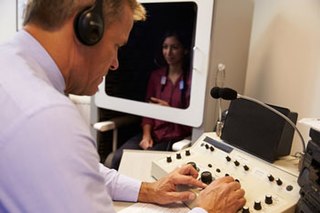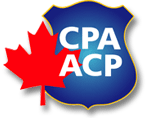
Audiology is a branch of science that studies hearing, balance, and related disorders. Audiologists treat those with hearing loss and proactively prevent related damage. By employing various testing strategies, audiologists aim to determine whether someone has normal sensitivity to sounds. If hearing loss is identified, audiologists determine which portions of hearing are affected, to what degree, and where the lesion causing the hearing loss is found. If an audiologist determines that a hearing loss or vestibular abnormality is present, they will provide recommendations for interventions or rehabilitation.
The Alma Mater Society of the University of British Columbia Vancouver, otherwise referred to as the Alma Mater Society or the AMS, is the student society of UBC Vancouver and represents more than 58,000 undergraduate and graduate students at UBC's Vancouver campus and their affiliated colleges. The AMS also operates student services, businesses, resource groups and clubs. The AMS is a non-profit organization that exists to advocate for student viewpoints and ensure the needs of students are met by the University Administration and the Provincial and Federal governments. The Alma Mater Society is composed of a number of constituency organizations for undergraduate students, and works closely with the Graduate Student Society of UBC.
A communicative disorders assistant (CDA) performs hearing and speech-language screenings, prepares therapy materials, implements speech therapy, reports on therapy outcomes, performs routine maintenance on clinical equipment, and works with speech-language pathologists (SLPs) and audiologists to adjust therapy goals. While CDAs cannot perform assessments or set therapy goals, they are a vital part of the therapy team. CDAs are supervised by and work in conjunction with SLPs and audiologists.

The Canadian Police Association (CPA) is an advocacy and fundraising organization that is also a registered lobbyist with the Canadian government. The CPA represents Canadian police officers. It is divided into 27 regional chapters at municipal, provincial, and federal levels. Each of these chapters is represented by either a president or director.
The American Speech–Language–Hearing Association (ASHA) is a professional association for speech–language pathologists, audiologists, and speech, language, and hearing scientists in the United States and internationally. It has more than 218,000 members and affiliates.

The All India Institute of Speech and Hearing, commonly known as AIISH (AYE-SH), is located in Manasagangotri, Mysore, India. It is an autonomous institute under the Ministry of Health and Family Welfare. The institute was established in 1966 with a focus on training professionals for speech and hearing sciences.

Speech-language pathology is a healthcare field of expertise practiced globally. Speech-language pathology (SLP) specializes in the evaluation, diagnosis, treatment, and prevention of communication disorders, cognitive-communication disorders, voice disorders, and swallowing disorder across the lifespan. It is an independent profession that is sometimes considered a "related health profession" or allied health profession by professional bodies like the American Speech-Language-Hearing Association (ASHA) and Speech Pathology Australia. Allied health professions include audiology, optometry, occupational therapy, rehabilitation psychology, physical therapy and others.
The Hanen Centre is a not-for-profit registered charitable organization, based in Toronto, Canada. It defines its mission as, “providing the important people in a child’s life with the knowledge and training they need to help the child develop the best possible language, social and literacy skills”.
Aural rehabilitation is the process of identifying and diagnosing a hearing loss, providing different types of therapies to clients who are hard of hearing, and implementing different amplification devices to aid the client’s hearing abilities. Aural rehab includes specific procedures in which each therapy and amplification device has as its goal the habilitation or rehabilitation of persons to overcome the handicap (disability) caused by a hearing impairment or deafness.
Richard Morgan Downey is an American obesity advocate, consultant and editor of the Downey Obesity Report. Downey is the former executive director of the American Obesity Association and has been actively involved in the obesity field for since 1998. He organized the first conference on obesity as a public policy issue in 1999, and has testified before Congressional Committees. In addition, he has approximately 20 professional publications and has been featured in the New York Times, the Washington Post and the Wall Street Journal, and interviewed on The Today Show and NPR.
Frank R. Kleffner was an American pathologist who was a professor at Washington University in St. Louis, noted for his contributions in the fields of speech and language pathology and hearing.
Speech-Language & Audiology Canada (SAC), formerly known as the Canadian Association of Speech-Language Pathologists and Audiologists (CASLPA), is a national organization supporting and representing speech-language pathologists, audiologists and communication health assistants. The association adopted its new name and logo on February 5, 2014.
Speech Pathology Australia (SPA) is the national peak body for the speech pathology profession in Australia.
Leo G. Doerfler (1919–2004) helped develop the practice of audiology in the 1940s. He played a leading role in establishing professional bodies and educational standards for audiology practitioners.
The International Institute of Rehabilitation Sciences and Research is managed by ASTHA Trust, founded by Mrs.Bishnupriya Mishra. The campus is located at KHANDAGIRI, in Bhubaneswar, Orissa, India. The institution provides 3yeae +10 month degree course called BASLP.

The National Institute of Speech and Hearing (NISH) is an institute devoted to the education and rehabilitation of individuals with speech-language and hearing impairments located in Thiruvananthapuram, the capital city in the Indian state of Kerala. It was established in 1997 on the initiative of the state of Kerala and is a self-financing affiliate college of the University of Kerala. Academics at NISH is unique in the sense that NISH has an integrated campus where students with hearing impairment and students with normal hearing share the same campus. Bachelor’s level courses exclusively for students with hearing impairment include Degree courses in Fine Arts, Computer Science and Commerce affiliated to University of Kerala. On the other hand, NISH also provides RCI approved professional courses at undergraduate level and graduate level in Audiology and Speech Language Pathology as well as diploma courses affiliated to Kerala Health University (KUHS)
Despite having the largest economy in South America or Central America, Brazil is still considered a developing country due to its low gross domestic product, or GDP, per capita, low living standards, high infant mortality rate and other factors. "With regard to hearing health, the Brazilian government established the national policy for giving attention to hearing health in 2004, in which the Ministry of Health, considering the social magnitude of hearing impairment in the Brazilian population and its consequences, presented the proposal to structure a network of services set up by regions and in hierarchy that aims to be implemented in all federative units of Brazil, with integrated actions to promote ear health, hearing impairment prevention, treatment and rehabilitation organized and managed by the National Health System, Sistema Único de Saúde (SUS), in Portuguese," writes Bevilacqua et al. (2010)
The College of Physicians and Surgeons of British Columbia is a regulatory college which regulates the practice of medicine in British Columbia. The primary function of the College is to ensure that physicians are qualified, competent and fit to practise medicine. The College administers processes for responding to complaints from patients and for taking action if a physician is practising in a manner that is incompetent, unethical or illegal.
Catriona Margaret Steele is a Canadian clinician-scientist. She is a Full professor in the department of speech-language pathology at the University of Toronto and a senior scientist at the Toronto Rehabilitation Institute in the University Health Network.
The Canadian Association of the Deaf estimates that there are over 350,000 Deaf Canadians, but there is not an exact number since there has never been a formal census on Deaf Canadians. There are approximately 1.2 million Indigenous people and over 750 reserves in Canada. There are various intersections of deaf and Indigenous culture, including valuing community, rooting their identity in their culture and its associated group instead of their individuality, having their identities oversimplified, being underrepresented in research and data collection, and experiencing health inequities due to their identities. There is limited research on Deaf Indigenous people, but the Saskatchewan Human Rights Association argues that issues faced by Deaf people are exacerbated when that person is also Indigenous.




